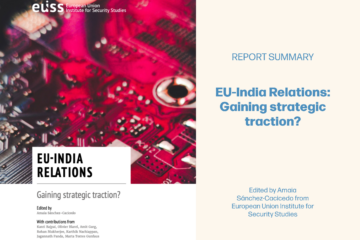Covid-19: The EU should send more scholars and observers to China – now!
KLUMME: We have become used to the Chinese studying and copying whatever we do that they think may benefit them. We, on our part, should perhaps for once study them, when it comes to combatting and understanding the corona virus Covid-19. They have, apparently, due to the nature of their surveillance system enormous amount of medical data on the behavioral patterns of the virus. Are we doing enough to tap into this data or are we letting our cultural bias and language barrier prevent us in understanding and coping with the virus?
Af Nikolaj Lunøe: Retired business psychologist
How many Western epidemiological researchers are, at this very moment, accessing Chinese medical databases, attempting to confirm or disconfirm conclusions drawn by their Chinese colleagues (based on statistical “cluster” and other analyses of Covid-19 data which the latter have performed) – in order to help bring the West one step ahead in curbing or, at least, regulating the disease?
According to Wikipedia, papers from Chinese medical journals are rarely cited by Western ones. The encyclopedia suggests two reasons: (i) Chinese scientific papers are written and organized in ways that do not live up to accepted international formats. (ii) They are – surprise – in Chinese.
So, how many employees at the WHO headquarters in Geneva can at all read Chinese? Is the EU preparing to send a delegation to China in order to monitor what will work well and less well (or downright disastrously) during the next weeks and months, when the Chinese begin to experiment with removing all their heavy restrictions in order to decide in advance what appears to be “best practice” for such an enormous endeavor – which we know that we will also have to undertake shortly?
My answer is “I fear not”. To my knowledge, the West has so far sent only 1 (one) delegation to China to study how the country battles C-19. The Chinese let the delegation into their “situation room.”
We have long since become used to the Chinese studying and copying whatever we do that they think may benefit them (and this may have made us arrogant). We, on our part, should perhaps study them – but such studies have rarely lead to us copying what we have observed (since we remain convinced that few of their social values, systems, and procedures, &c, are worth imitating).
But since China has, at least for now, largely succeeded in curbing Covid-19 – and has done so more efficiently than any other country – I cannot think of a good reason why we should not, in the current situation, send several delegations of scholars and political observers (as well as logisticians and others) to China in order to accomplish two objectives:
(1) Firstly to study, in as much detail as possible, the relative weight or impact of the many means by which the efforts of Chinese epidemiologists, and other professionals, to combat C-19 did become so efficient – and, (2) perhaps even more importantly, to study the huge amount of data they have collected.
According to WHO’s Bruce Aylward, their collecting such big data has allowed Chinese medical professionals to perform statistical analyses of:
(a) exactly how Covid-19 contagion spreads (apparently it did so most strongly in families, and less so at workplaces or in public spaces – despite the one-child policy which Chinese authorities long held on to),
(b) the length of its incubation period,
(c) the time during a patient’s illness when she will most likely infect others,
(d) how many ill people never saw a doctor or visited a clinic because their symptoms were very mild and thus were not counted as “confirmed cases” (Aylward believes they weren’t many),
(e) which measures that appeared to have larger effects – e.g., did testing-and-isolating the ill contribute more than big lockdowns, or was it vice versa?
Such data should at best only become available in the West some one or two months from now – if we insist on reinventing the wheel and rely solely on those which can be collected in more open societies.
(2) Secondly, to observe what will work well and less well (or downright disastrously) during the next weeks and months when the Chinese begin to experiment with removing all their heavy restrictions – particularly since we know that we must do the same things ourselves shortly.
Would such an endeavor be feasible?
I believe it would – since historical evidence suggests that many things are permitted during times of crisis and confusion which would otherwise be blocked or prohibited by those in power if attempted during “normal” times. In other words, we may currently have an opportunity for conducting participant observation in China that may not come back anytime soon – and not just of medical and epidemiological affairs, but also of everyday and sociological matters, the exercise of political power, etc.
True, we in the West still have every reason to keep supporting those democratic and liberal-minded citizens of Hong Kong who struggle and suffer to resist Beijing’s garroting of freedom of speech and of the remains of political pluralism in their city.
And many will have heard stories, equally true, about how local governors in China can be corrupt and find ways of bypassing attempts by central authorities to implement, say, measures of environmental protection; and of how the response of the latter will then be the tightening of centralized controls – exemplified by the adding of Xi Jinping’s name to the nation’s constitution.
One of many problems facing authoritarian hierarchies is that so many increments necessary for keeping their component systems up and running must come from the top, because those in power fear losing their grip if they allow such measures to be initiated bottom-up – as is possible in non-authoritarian hierarchies, and markets, and democracies.
But I cannot see how these political positions, important as they are, can serve as argument against close-up study of Chinese successes and failures in the current situation.


